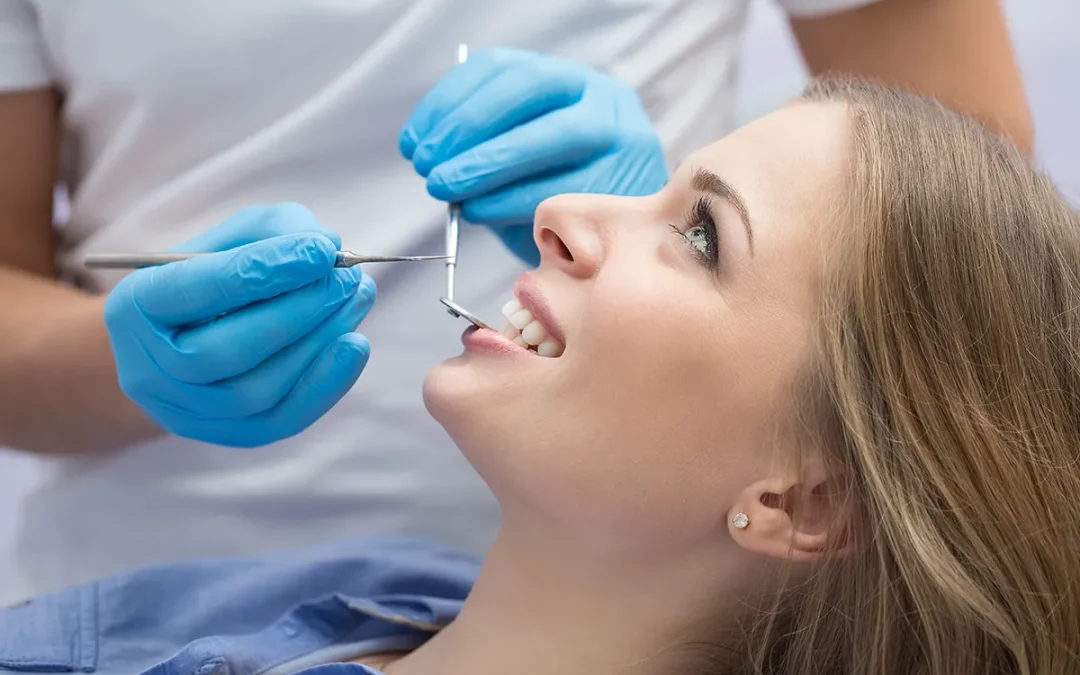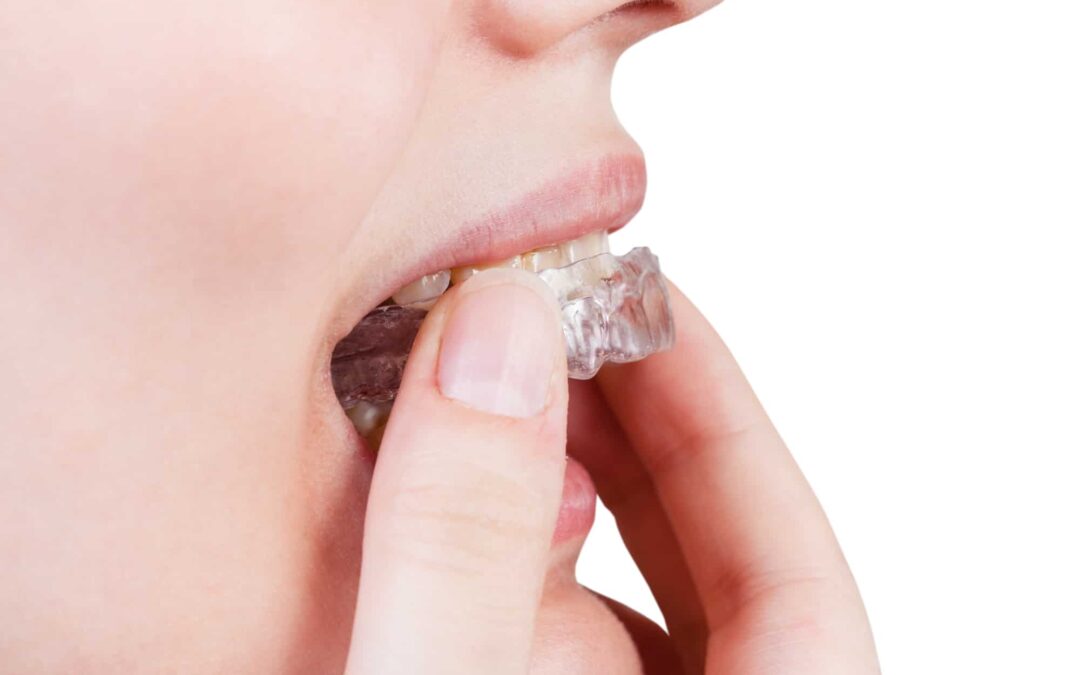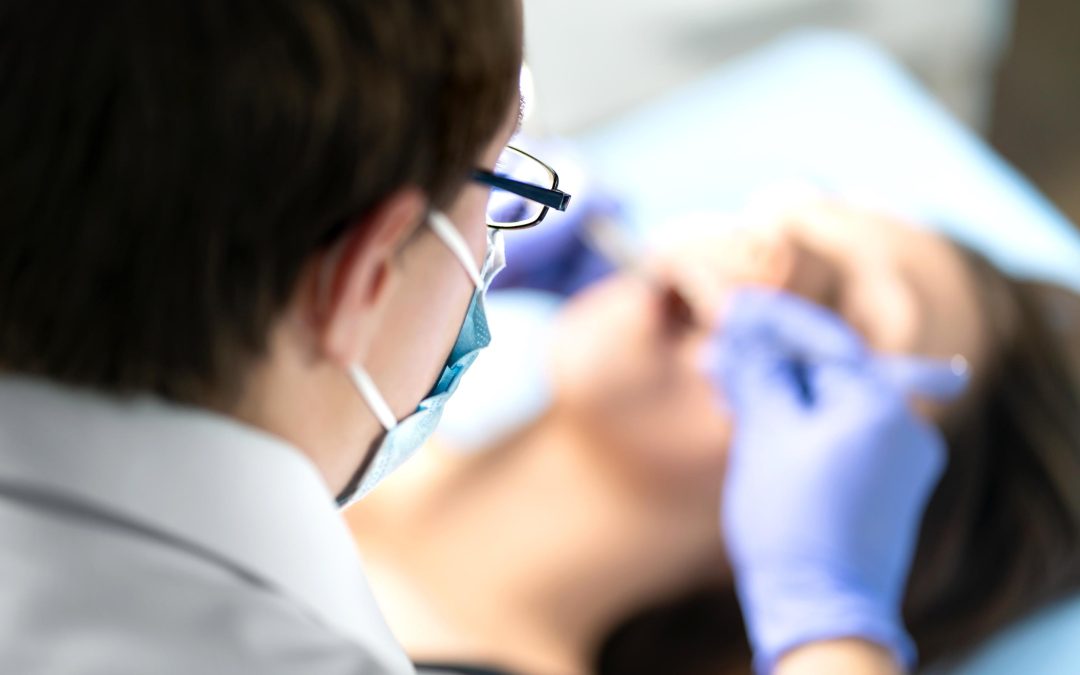
by Dclinicdubai | Sep 24, 2025 | Health
Orthodontic treatment is an investment in both time and health, but one of the most common questions patients ask is: “How long will I have to wear braces?” While there is no universal answer, several factors determine the length of time you’ll need to achieve a properly aligned smile. If you’re considering dental braces in Dubai, understanding what influences treatment duration can help you set realistic expectations and plan your journey with confidence. From case complexity to patient compliance, every detail matters.
Average Treatment Time for Braces:
Most dental braces treatments take between 12 to 24 months. However, some mild cases may be completed in as little as six months, while more complex situations could take up to 30 months or longer. Your orthodontist will provide a tailored estimate after your initial consultation, but this time frame may adjust based on your progress and oral health condition.
Type of Braces Used:
The kind of braces you choose can impact how long your treatment lasts. Each system applies force in slightly different ways, and some may speed up the alignment process.
-
Metal Braces: Traditional and often the most efficient for complex cases.
-
Ceramic Braces: Aesthetic alternative, similar in function but may take slightly longer.
-
Clear Aligners: Best for mild to moderate cases; treatment time varies based on consistent wear.
-
Lingual Braces: Hidden behind the teeth and can require more time due to complexity.
For those opting for dental braces in Dubai, modern clinics typically offer a full range of these options to suit different needs.
Severity of the Orthodontic Problem:
Treatment duration is closely tied to the complexity of the dental issue. Minor crowding or spacing may take less time to correct, while severe malocclusion, overbite, or underbite can significantly extend the timeline. Similarly, issues involving jaw alignment or rotated teeth often require longer and more intensive intervention.
Age of the Patient:
Age plays a role in how quickly your teeth move. Generally, younger patients experience faster results because their jawbones are still growing, making teeth easier to shift. Adults can still achieve excellent results, but the process may take longer due to denser bone tissue and fully developed facial structures. That said, age is not a limiting factor—just a variable in the timeline.
Oral Health Condition Before Treatment:
Your oral health at the beginning of treatment can impact its length. Patients with healthy gums, clean teeth, and no underlying issues typically progress more quickly. On the other hand, the presence of gum disease, tooth decay, or bone loss can delay treatment as these issues must be addressed first to ensure safe tooth movement.
Compliance with Orthodontic Instructions:
How well you follow your orthodontist’s instructions can make a big difference in how long your treatment takes. Compliance involves:
-
Attending all scheduled appointments
-
Wearing elastics or aligners as prescribed
-
Avoiding foods that could damage brackets or wires
-
Maintaining excellent oral hygiene
Delays, broken appliances, or skipped appointments can all add unnecessary months to your treatment timeline.
Regular Orthodontic Adjustments:
Orthodontic treatment is a step-by-step process. Each appointment builds upon the previous adjustment to maintain consistent progress. Most patients visit their orthodontist every 4 to 8 weeks for checkups and adjustments. Missing these appointments or rescheduling frequently can result in slower progress and extended treatment duration.
Use of Accelerated Orthodontic Techniques:
Some modern clinics offer accelerated orthodontics, which includes devices or procedures that stimulate bone movement and speed up the alignment process. These options may include:
-
Vibration devices to enhance cellular response
-
Micro-osteoperforations to stimulate bone remodeling
-
Low-level laser therapy for faster healing and movement
While these techniques aren’t necessary for every case, they can reduce treatment time in select situations.
Retreatment or Previous Orthodontic Work:
If you’ve had braces before and your teeth have shifted back due to not wearing a retainer, you may need a shorter treatment this time. However, if teeth have relapsed significantly, it could take just as long—or longer—than your initial treatment, especially if bone or gum issues have developed in the meantime.
Personal Goals and Desired Results:
Some patients are looking for small cosmetic improvements and may be content with partial corrections, which can be completed quickly. Others want comprehensive changes involving bite correction and facial symmetry. The more extensive your treatment goals, the longer your braces may need to stay on.
Final Thoughts:
While many factors influence how long dental braces treatment takes, the good news is that modern orthodontics offers greater flexibility, speed, and comfort than ever before. From the severity of your dental issue to the type of braces you choose, each element plays a role in shaping your timeline. If you’re pursuing dental braces in Dubai, you’ll benefit from expert care, innovative techniques, and customized treatment plans designed to deliver optimal results. The key to a smooth and timely journey is understanding your role in the process—and staying committed from start to finish.

by Dclinicdubai | Sep 23, 2025 | Health
Detecting cavities early is crucial for maintaining oral health, and a dental tooth filling in Dubai is often the recommended solution when decay reaches a certain stage. Dentists use a combination of techniques and tools to accurately identify cavities that require fillings, ensuring timely treatment and preventing further damage to the tooth.
Visual Examination Techniques:
Dentists begin cavity detection with a thorough visual inspection of the teeth using bright light and dental mirrors to spot obvious signs of decay such as discoloration, pits, or holes on the tooth surface. They check for:
-
Dark spots or stains on enamel
-
Rough or softened areas that suggest enamel breakdown
-
Visible holes or cavities on the tooth surface
-
Gum inflammation near the suspected tooth
Use of Dental X-Rays to Find Hidden Cavities:
X-rays play a critical role in uncovering cavities not visible during the visual exam, especially between teeth or under existing fillings. Types include:
-
Bitewing X-rays to detect decay between teeth
-
Periapical X-rays for detailed root and bone structure views
-
Panoramic X-rays for an overall mouth assessment
-
Digital X-rays offering enhanced image clarity and reduced radiation
Probing and Tactile Detection Methods:
Dentists may use a dental explorer, a sharp metal instrument, to gently probe tooth surfaces and feel for soft spots or sticky areas indicating decay. While useful, this method must be done carefully to avoid damaging fragile enamel.
-
Detects texture changes on tooth surface
-
Identifies areas that may be sensitive or tender
-
Helps confirm visual and X-ray findings
Advanced Diagnostic Tools and Technologies:
Modern dentistry incorporates innovative technologies to improve cavity detection accuracy beyond traditional methods.
-
Laser fluorescence devices that measure tooth mineral loss
-
Transillumination using bright light to spot cracks and decay
-
Intraoral cameras providing detailed images for patient education
-
CAD/CAM systems for precise cavity mapping
Symptoms Patients Report That Signal Possible Cavities:
Dentists also rely on patient feedback during consultations to identify teeth needing fillings. Common symptoms include:
-
Tooth sensitivity to hot, cold, or sweet foods
-
Mild to sharp tooth pain or discomfort
-
Visible holes or rough edges felt with the tongue
-
Bad breath or unpleasant taste in the mouth
-
Discomfort when biting or chewing
Importance of Early Detection and Timely Dental Tooth Filling in Dubai:
Prompt detection allows for minimally invasive treatment and prevents complications such as infection or tooth loss. Early fillings restore tooth integrity and function with benefits like:
-
Preventing further decay progression
-
Reducing risk of painful infections
-
Preserving natural tooth structure
-
Improving long-term oral health outcomes
How Dentists Decide on the Need for a Filling:
Deciding when a cavity requires filling depends on factors like the size, location, and depth of decay, as well as patient symptoms.
-
Small surface lesions may be monitored or treated with fluoride
-
Moderate to large cavities typically require fillings
-
Cavities near the tooth pulp may need root canal therapy
-
Patient’s overall dental health and risk factors influence decisions
Final Thoughts:
Detecting cavities that need treatment is a careful blend of visual, tactile, and technological assessments combined with patient input. Timely action through a dental tooth filling in Dubai can save teeth and prevent more extensive procedures. Regular dental visits and professional evaluations remain the best defense against undetected decay.

by Dclinicdubai | Sep 23, 2025 | Health
Teeth grinding in children—also known as pediatric bruxism—is more common than many parents realize. While it may seem harmless at first, consistent grinding can lead to dental damage, jaw pain, and sleep disruptions. If your child shows signs of bruxism, it’s essential to address it early. Fortunately, families seeking teeth grinding treatment in Dubai can access a range of professional options tailored for pediatric needs.
What Is Pediatric Bruxism:
Pediatric bruxism refers to the involuntary grinding or clenching of teeth in children, typically during sleep. While some cases are temporary and harmless, chronic grinding can lead to long-term oral health issues if not treated.
-
Common in children between ages 3–10
-
Often occurs at night (sleep bruxism)
-
May be related to stress, dental misalignment, or growing pains
-
Usually goes unnoticed until symptoms or complications arise
Signs Parents Should Watch For:
Because children often grind their teeth while asleep, many parents only discover it after noticing signs of wear or being told by a dentist. Early identification can prevent more severe issues later.
-
Audible grinding noises during sleep
-
Complaints of sore jaw or face in the morning
-
Tooth sensitivity or enamel wear
-
Disrupted sleep or behavioral changes
-
Headaches, especially in the morning
Common Causes in Children:
Bruxism in kids may stem from a variety of physical and psychological triggers. Identifying the root cause is a critical step in choosing the right treatment approach.
-
Misaligned teeth or bite issues
-
Stress or anxiety, especially around school or home
-
Pain from ear infections or teething
-
Hyperactivity or other neurological conditions
-
Sleep disorders such as apnea
Why Early Treatment Matters:
While some children naturally outgrow teeth grinding, ongoing cases can cause complications that require costly treatment in the future. Addressing the issue early ensures better outcomes.
-
Prevents permanent tooth damage
-
Reduces risk of jaw joint issues (TMJ disorders)
-
Improves sleep quality and daytime focus
-
Eases discomfort and emotional distress
-
Supports healthy oral development
Diagnosis and Professional Evaluation:
Getting a proper diagnosis from a pediatric dentist or orthodontist is essential. Dentists in Dubai often use a combination of medical history, observation, and dental impressions to assess the condition.
-
Clinical examination to assess tooth wear
-
Parent interview to discuss symptoms and habits
-
Sleep history and possible referral to a sleep specialist
-
In some cases, imaging or bite analysis
Treatment Options Available:
Once diagnosed, treatment plans are tailored to your child’s age, severity of grinding, and underlying causes. Non-invasive approaches are prioritized for children whenever possible.
-
Behavioral therapy: Reducing stress and encouraging relaxation
-
Dental correction: Addressing bite misalignment or missing teeth
-
Custom night guards: Soft guards made specifically for kids
-
Lifestyle changes: Reducing screen time, caffeine, or sugar before bed
-
Medical management: In cases related to sleep or neurological disorders
Custom Night Guards for Kids:
A common and effective solution, custom night guards act as a protective barrier between the upper and lower teeth during sleep. Pediatric versions are softer and more flexible than adult models.
-
Designed from dental molds for a precise fit
-
Help protect against enamel wear and jaw strain
-
Comfortable enough for children to wear overnight
-
Easy to clean and maintain
-
Usually recommended for older children with permanent teeth
Home Care Tips for Parents:
Parents play a critical role in managing their child’s bruxism by creating supportive routines and monitoring symptoms closely. Simple at-home strategies can make a significant difference.
-
Establish calming bedtime routines
-
Limit stimulating activities before bed
-
Use warm compresses to relax jaw muscles
-
Monitor for new or worsening symptoms
-
Schedule regular dental check-ups
Teeth Grinding Treatment in Dubai:
Dubai offers specialized pediatric dental clinics that provide holistic care for children with bruxism. Families can access state-of-the-art facilities where experts offer diagnosis, treatment, and ongoing monitoring. Choosing a clinic with experience in pediatric care ensures that treatment is both effective and child-friendly.
-
Pediatric dentists with expertise in child behavior
-
Clinics offering custom-made night guards for children
-
Access to multi-disciplinary teams including sleep specialists
-
Modern diagnostic tools and gentle treatment techniques
-
Multilingual staff for better communication with children and parents
When to See a Dentist:
Not all cases of teeth grinding require immediate intervention, but if the condition is persistent or causing discomfort, it’s time to consult a professional. Timely treatment can prevent complications and give your child relief.
-
Grinding persists for several months
-
Child complains of pain or difficulty chewing
-
Visible damage to teeth
-
Behavioral changes or sleep disruptions
-
Diagnosis of a related medical condition
Final Thoughts:
Supporting Your Child’s Oral Health Journey
Teeth grinding can be a frustrating issue for both children and parents, but with the right care and attention, it is manageable. Early intervention, professional evaluation, and consistent home support can make a world of difference. For families exploring teeth grinding treatment in Dubai, there are excellent resources and professionals ready to help your child sleep better, smile brighter, and grow up with strong, healthy teeth.

by Dclinicdubai | Sep 22, 2025 | Health
Many adults in Dubai face the question of whether it’s too late to undergo Wisdom Tooth Extraction In Dubai. Unlike teenagers, where wisdom tooth removal is often routine, adults may worry about age-related risks, prolonged recovery, or whether extraction is necessary at all. The truth is that wisdom tooth extraction can be safely performed at almost any age, provided there are valid dental reasons. This article explores the considerations, benefits, and challenges of wisdom tooth extraction for adults, helping you decide if it’s the right choice for your oral health.
Why Adults Might Need Wisdom Tooth Extraction:
Even if wisdom teeth didn’t cause issues during adolescence, problems can arise later in life due to changes in oral health or tooth position.
-
Impacted or partially erupted teeth causing pain or swelling
-
Crowding or shifting of other teeth affecting bite alignment
-
Development of cysts or infections around wisdom teeth
-
Gum disease or tooth decay affecting wisdom teeth or adjacent teeth
-
Difficulty in maintaining oral hygiene around wisdom teeth
Age-Related Considerations in Wisdom Tooth Extraction:
Adults may face unique factors that influence the procedure’s complexity and recovery compared to younger patients.
-
Denser jawbone making tooth removal more challenging
-
Increased likelihood of existing dental work or restorations
-
Presence of medical conditions affecting healing, such as diabetes or heart disease
-
Potential for slower recovery and increased post-operative discomfort
-
Importance of thorough pre-operative evaluation and tailored anesthesia options
Benefits of Wisdom Tooth Extraction for Adults:
Removing problematic wisdom teeth at any age can significantly improve oral health and prevent future complications.
-
Relief from persistent pain or discomfort caused by impacted teeth
-
Prevention of infections and abscess formation in the gums
-
Protection of neighboring teeth from damage or decay
-
Improved ability to maintain oral hygiene and prevent gum disease
-
Enhanced overall dental alignment and bite stability
Risks of Delaying Wisdom Tooth Extraction in Adulthood:
Postponing extraction when necessary can lead to more severe issues that affect both oral and general health.
-
Increased risk of infection spreading to surrounding tissues or bloodstream
-
Development of cysts or tumors around impacted wisdom teeth
-
Greater damage to adjacent teeth requiring more extensive treatment
-
More complex surgical procedures with longer recovery periods
-
Potential for chronic jaw pain or temporomandibular joint (TMJ) disorders
What Adults Should Expect During Wisdom Tooth Extraction:
Understanding the procedure helps reduce anxiety and prepares adults for a smoother experience.
-
Comprehensive dental examination including X-rays to assess tooth position
-
Discussion of anesthesia options such as local anesthesia, sedation, or general anesthesia
-
Surgical removal of wisdom teeth by an oral surgeon or experienced dentist
-
Post-operative instructions including pain management and oral care
-
Follow-up appointments to monitor healing and address complications if any
Post-Extraction Care Tips for Adults:
Proper aftercare is crucial to minimize discomfort and promote faster recovery, especially for adult patients.
-
Use prescribed pain medications and antibiotics as directed
-
Apply ice packs to control swelling within the first 48 hours
-
Maintain a soft diet and avoid hot, spicy, or crunchy foods
-
Avoid smoking, alcohol, and strenuous activities for a few days
-
Practice gentle oral hygiene to keep the extraction site clean without disturbing it
Choosing a Clinic for Wisdom Tooth Extraction In Dubai:
Selecting a qualified and experienced clinic is essential to ensure safety and effectiveness, particularly for adult patients.
-
Availability of advanced diagnostic tools and modern surgical techniques
-
Expertise in managing adult dental cases and related medical conditions
-
Flexible anesthesia options tailored to patient comfort and needs
-
Comprehensive aftercare support and clear communication
-
Positive patient feedback and transparent pricing policies
Final Thoughts:
-
Wisdom Tooth Extraction In Dubai is not limited by age; adults can safely undergo the procedure when necessary.
-
Timely extraction can prevent complications such as infections, damage to adjacent teeth, and chronic pain.
-
Adults should expect a thorough pre-surgical evaluation and a tailored approach to anesthesia and aftercare.
-
Post-operative care is critical to ensure smooth healing and minimize risks.
-
Choosing the right dental clinic with experienced professionals significantly enhances treatment success and patient comfort.
In conclusion, it’s never too late for adults to consider wisdom tooth extraction if dental health issues arise. Consult with a trusted dental professional in Dubai to determine the best course of action for your oral wellbeing.

by Dclinicdubai | Sep 22, 2025 | Health
Routine dental visits are essential for maintaining a healthy smile and catching oral issues before they escalate. Whether you’re a new patient or someone returning for a check-up, knowing what to expect can help you feel more comfortable and prepared. In a city known for healthcare excellence, General Dentistry in Dubai offers thorough and patient-centered appointments that prioritize both prevention and comfort. These regular visits not only keep your teeth and gums healthy but also support your overall wellness.
Initial Check-In and Medical History Review:
The appointment begins with a brief check-in, during which your personal details and medical history are reviewed. This step ensures the dental team has up-to-date information to tailor your care appropriately.
-
Update of medical history, including medications or conditions
-
Confirmation of dental insurance or payment details
-
Discussion of any dental concerns or symptoms
-
Overview of previous treatments or allergies
-
Preparation for diagnostic assessments
Digital X-Rays and Imaging:
If it’s your first visit or if it’s been a while since your last X-rays, your dentist may recommend imaging to get a full view of your oral health. Digital X-rays are quick, safe, and provide detailed insights.
-
Checks for hidden cavities between teeth
-
Evaluates bone levels and root structures
-
Detects impacted teeth or jaw issues
-
Screens for infections or cysts below the surface
-
Forms the basis for treatment planning
Oral Examination by the Dentist:
Once your records and images are ready, the general dentist will perform a thorough examination of your entire mouth. This includes your teeth, gums, jaw, and other oral tissues.
-
Checks for cavities, cracks, or worn enamel
-
Examines gums for signs of inflammation or recession
-
Evaluates bite alignment and jaw movement
-
Inspects existing dental work for integrity
-
Screens for oral cancer and abnormalities
Professional Dental Cleaning:
A dental hygienist or the dentist will carry out a professional cleaning to remove buildup that cannot be addressed by brushing and flossing alone. This process enhances your oral hygiene and prevents disease.
-
Removes plaque and tartar using specialized tools
-
Polishes teeth to eliminate minor stains
-
Flosses between teeth to check for sensitivity
-
Rinses with an antibacterial solution
-
Fluoride treatment may be applied for added protection
Discussion of Findings and Recommendations:
After the examination and cleaning, your dentist will discuss their findings with you. This may include any areas of concern, preventive suggestions, or proposed treatment plans if issues were identified.
-
Explanation of any cavities, gum concerns, or enamel wear
-
Personalized advice for at-home oral care
-
Discussion of treatment options if needed
-
Recommendations for cosmetic improvements if requested
-
Opportunity for patients to ask questions
Oral Cancer Screening:
Many general dentistry appointments now include an oral cancer screening as a preventive measure. This quick, painless check looks for early warning signs that may require further investigation.
-
Visual inspection of tongue, cheeks, and throat
-
Palpation of jaw and neck for lumps or swelling
-
Identification of red or white patches
-
Evaluation of any sores that won’t heal
-
Advice on lifestyle risk factors (e.g., tobacco use)
Customized Preventive Guidance:
Your dentist will provide tailored recommendations based on your oral health needs, lifestyle, and risk factors. This proactive approach helps you stay on track between visits.
-
Advice on brushing and flossing techniques
-
Recommendations for toothpaste, mouthwash, and tools
-
Suggestions for dietary habits that protect teeth
-
Strategies for dealing with grinding or dry mouth
-
Tips for managing sensitivity or bleeding gums
Scheduling the Next Visit:
Before you leave, the dental staff will help you book your next appointment—usually six months later—unless follow-up care is needed sooner. Staying consistent helps maintain oral health and catch changes early.
-
Suggested timeline for the next cleaning or exam
-
Scheduling of restorative treatments if needed
-
Reminders set via email, SMS, or call
-
Flexible appointment options for busy schedules
-
Assistance with treatment financing or insurance claims
Quality Care in Dubai’s Modern Clinics:
With a focus on comfort, precision, and preventive care, General Dentistry in Dubai offers a streamlined experience from start to finish. Clinics are equipped with the latest technology and staffed by skilled professionals who ensure that routine visits are anything but routine.
-
Advanced diagnostics including 3D imaging and intraoral cameras
-
Comfortable, spa-like environments to reduce dental anxiety
-
Multilingual staff for diverse patient needs
-
Emphasis on minimally invasive, patient-focused care
-
Integration of general, cosmetic, and restorative services
Final Thoughts:
-
A routine general dentistry appointment includes exams, cleanings, and preventive care.
-
Early detection of issues through X-rays and oral exams is key to long-term health.
-
Dental cleanings remove buildup that brushing can’t address at home.
-
Regular visits offer professional advice customized to your oral health needs.
-
General Dentistry in Dubai delivers top-tier care, making routine dental visits a seamless and beneficial experience.





